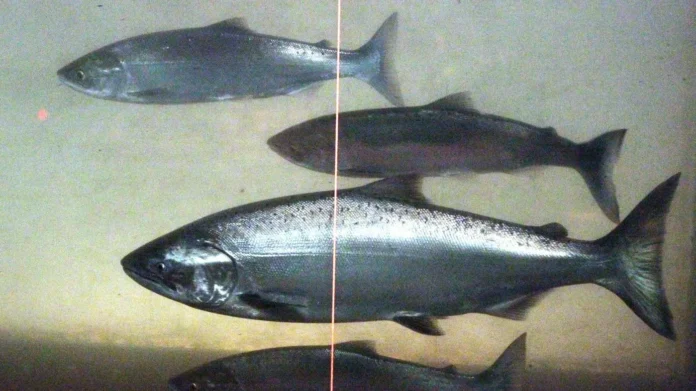In a controversial move, President Trump has pulled the United States out of a Biden-era agreement with several tribes that aimed to restore salmon in the Pacific Northwest. The decision, announced in a late Thursday memo, has sparked outrage among environmentalists and tribal leaders who see it as a major setback for the region’s salmon population.
The agreement, which was signed by the Biden administration earlier this year, aimed to address the declining salmon population in the Pacific Northwest. It involved the removal of four hydroelectric dams on the Snake River in Washington state, which have been identified as a major barrier to salmon migration. The dams, built in the 1960s and 1970s, have significantly reduced the number of salmon returning to their spawning grounds, leading to a decline in the species’ population.
However, President Trump has described the agreement as an example of “radical environmentalism” and has instead chosen to prioritize power generation from hydroelectric dams in the region. In his memo, he stated that the removal of the dams would have a negative impact on the economy and would result in the loss of jobs in the energy sector.
This decision has been met with strong criticism from environmental groups and tribal leaders who have been fighting for the restoration of salmon in the Pacific Northwest for decades. They argue that the removal of the dams is crucial for the survival of the salmon population, which is not only a vital part of the ecosystem but also holds cultural significance for many Native American tribes in the region.
The tribes, who have been at the forefront of the fight to restore salmon, have expressed their disappointment and frustration with President Trump’s decision. They have accused the administration of disregarding their rights and failing to consult with them before making such a significant decision.
The removal of the dams was seen as a major step towards addressing the declining salmon population in the Pacific Northwest. It was also seen as a symbol of cooperation between the government and Native American tribes, who have historically been marginalized and ignored in matters concerning their land and resources.
The Biden-era agreement was a result of years of negotiations between the government and the tribes, and its sudden termination has left many feeling betrayed and disheartened. The tribes had high hopes that the removal of the dams would not only restore the salmon population but also bring back traditional fishing practices and revitalize their culture.
The decision to prioritize power generation from hydroelectric dams is not only a blow to the tribes and environmentalists but also goes against the global trend towards renewable energy. Many countries around the world are moving away from fossil fuels and investing in clean energy sources, such as hydroelectric power, to combat climate change. By choosing to prioritize power generation from dams, the Trump administration is going against this trend and ignoring the urgent need to address the climate crisis.
Furthermore, the decision to pull out of the agreement also goes against the government’s own efforts to protect and restore the environment. The Biden administration has made it a priority to address climate change and has taken steps to protect the environment, such as rejoining the Paris Climate Agreement. By pulling out of the agreement, the Trump administration is not only going against the efforts of the current administration but also disregarding the future of our planet.
In conclusion, President Trump’s decision to pull the United States out of the Biden-era agreement to restore salmon in the Pacific Northwest is a major setback for the region’s environment and the rights of Native American tribes. It goes against the global trend towards renewable energy and ignores the urgent need to address the climate crisis. The tribes and environmentalists will continue to fight for the restoration of salmon and the protection of the environment, and it is our hope that the government will reconsider its decision and work towards a sustainable future for all.

